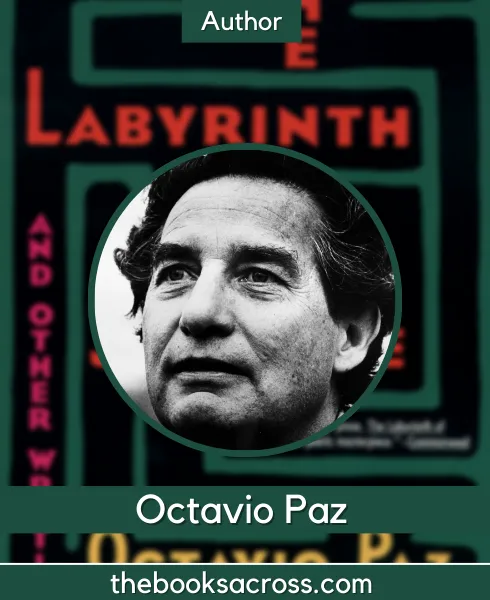The Labyrinth of Solitude PDF is a literary masterpiece written by Octavio Paz, a renowned Mexican poet, essayist, and diplomat. The book was first published in Spanish in 1950, under the title “El Laberinto de la Soledad,” and was later translated into English by Lysander Kemp and published by Grove Press in 1961.
The book has received numerous positive reviews and has been widely acclaimed for its profound insights into the complexities of Mexican culture and society. In “The Labyrinth of Solitude,” Paz explores the themes of identity, history, and culture, and delves into the psychological and cultural roots of the Mexican character.
One of the key themes of the book is the idea of solitude, which Paz believes is a defining characteristic of the Mexican character. According to Paz, Mexicans are trapped in a “labyrinth of solitude,” where they struggle to reconcile their indigenous roots with their European heritage. The Labyrinth of Solitude is available in multiple formats, including paperback, hardcover, and eBook.
Table of Contents
About the Author
Octavio Paz (1914-1998) was a Mexican poet, essayist, and diplomat, widely regarded as one of the most influential and important Latin American writers of the 20th century. He was born in Mexico City and studied literature and philosophy at the National Autonomous University of Mexico.

Paz’s literary career began in the 1930s, and he quickly gained recognition for his poetry and essays. His work often explored the themes of Mexican identity, history, and culture, and he was known for his profound insights into the complexities of the Mexican character.
In addition to his literary achievements, Paz was also a distinguished diplomat, serving as Mexico’s ambassador to India from 1962 to 1968. During this time, he became interested in Eastern philosophy and religion, and this influence can be seen in some of his later work.
Paz received numerous awards and honors throughout his career, including the Nobel Prize in Literature in 1990, the Miguel de Cervantes Prize in 1981, and the Neustadt International Prize for Literature in 1982.
Details of The Labyrinth of Solitude Book
| Book | The Labyrinth of Solitude |
| Author | Octavio Paz |
| Original language | Spanish |
| Originally published | 1950 |
| Category | Nonfiction, Essays |
| Publisher | Grove Press Incorporated |
| Total Pages | 212 |
| Format | PDF, ePub |
The Labyrinth of Solitude PDF Free Download
Click on the download button below to get a pdf file of The Labyrinth of Solitude book.
Multiple Languages Editions of The Labyrinth of Solitude Book
The Labyrinth of Solitude by Octavio Paz has been translated into several languages, including English, Spanish, French, German, Italian, Portuguese, and Japanese. The availability of specific language editions may vary depending on the country and publisher.
| Book Editions | Check Now |
|---|---|
| English | Check Price |
| Spanish | Check Price |
The Labyrinth of Solitude Summary
The book begins by examining the Mexican relationship with death and how this shapes their attitude towards life. Paz also explores the concept of Mexican identity, which is often shaped by a combination of indigenous and European influences.
Throughout the book, Paz delves into the role of the Mexican Revolution in shaping Mexican culture and society, and how it has left a lasting impact on the national psyche. He also discusses the influence of religion, particularly Catholicism, on Mexican culture and its people.
Another key theme in the book is the idea of solitude. Paz argues that Mexicans are trapped in a “labyrinth of solitude” where they struggle to reconcile their indigenous roots with their European heritage. He also explores the relationship between Mexico and the United States and the tension that exists between the two countries.
The book concludes with Paz’s reflections on the future of Mexico and its people. He suggests that Mexicans need to embrace their unique identity and history in order to move forward as a nation.
Similar Books to The Labyrinth of Solitude Book
- One Hundred Years of Solitude by Gabriel Garcia Marquez
- The Death of Artemio Cruz by Carlos Fuentes
- The Underdogs by Mariano Azuela
- Pedro Paramo by Juan Rulfo
- The Burning Plain and Other Stories by Juan Rulfo
- The Power and the Glory by Graham Greene
- The Brief Wondrous Life of Oscar Wao by Junot Diaz
- The Hummingbird’s Daughter by Luis Alberto Urrea
FAQs(Frequently Asked Questions)
Why is The Labyrinth of Solitude important?
The Labyrinth of Solitude is important because it provides profound insights into the complexities of Mexican culture and society, exploring themes such as identity, history, and culture.
What is the book The Labyrinth of Solitude about?
The Labyrinth of Solitude is a book about Mexican culture and society, exploring themes such as identity, history, culture, and the psychological and cultural roots of the Mexican character.
What is the moral of The Labyrinth of Solitude?
The moral of The Labyrinth of Solitude is that Mexicans need to embrace their unique identity and history in order to move forward as a nation.
What is the symbolism in The Labyrinth of Solitude?
The Labyrinth of Solitude uses various symbols to represent the complexities of Mexican culture and society, including the Day of the Dead, the Aztec past, the Revolution, and the Mexican-American relationship.
When was The Labyrinth of Solitude written?
The Labyrinth of Solitude was written by Octavio Paz and was first published in Spanish in 1950.







